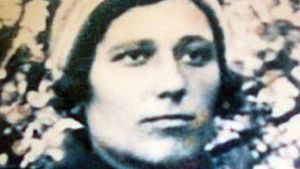A scholar of ancient literature and Byzantine poetry, the Russian academic Sergei Sergeevich Averintsev succeeded in surreptitiously reintroducing Christian truth into the heart of official publications of Soviet culture. He taught the faith in the holy of holies of official atheism.
Born in 1937, son of a Moscow biologist, Averintsev studied classical philology. In 1968, he received the Lenin Prize of Communist Youth as a translator. In 1971, 50 years ago, he was admitted as a member of the Gorky Institute of World Literature: Dependent on the USSR Academy of Sciences, the Soviet government founded this organization in 1932, under Stalin. Its mission is to promote the research of academics and their collaborators. Averintsev remained there until 1991, the year of the fall of communism.
In 1979, he defended a doctoral thesis on Byzantine poetry. In the 1980s, he became well known. In 1987, he became a correspondent of the Academy of Sciences, of which he would become a full member in 2003. In 1989, he was appointed professor at the Institute of History and “Cultural Theory” of the Lomonosov Moscow State University: students flocked to his lectures.
With John Paul II
In 1994, having met Pope John Paul II several times, Sergei Averintsev was invited to the Pontifical Academy of Social Sciences. It was the meeting of the “two lungs of the Church” — Byzantium and Rome.
By 1970, Averintsev had already managed to publish in the Soviet Encyclopedia some 30 articles on theological subjects, such as salvation, Wisdom, theology, eschatology and various themes of Christianity. For this purpose, he cast himself in the mold of the official culture, while dealing in both Greek and biblical philosophy.
This dissemination of articles with religious content under the control of the official censorship under Brezhnev was “a turning point in the ideological life of the country,” Averintsev noted. Meeting the indignant opposition of some Marxist-Leninist teachers, he engaged in a real bureaucratic guerrilla war with the “Institute of Scientific Atheism” of the USSR and the official censorship.
He skillfully navigated all the obstacles. Using the ambition of uneducated apparatchiks of the Central Committee, he ghost wrote articles for them with touches of spirituality, and then he used their favor to obtain permission to write more freely.
He published an article in Pravda (then the official newspaper of the Communist Party of the USSR) on the truth, presented as “crowning the great work” of the editor of the philosophical section. This made it impossible to publicly attack the final edition.
In 1986, he prepared an encyclopedic dictionary of theology planned for the Millennium of Christianity in Russia in 1988. The project was canceled, however, due to the death of Metropolitan Antoni of Leningrad.
Over a period of 40 years, from 1960 to 1991, Averintsev wrote 50 articles for two volumes of the Philosophical Encyclopedia, 60 for the official philosophical dictionary, and more than 80 on the “Myths of the Countries of the World.” Starting in 1964, he wrote a series of articles on the history of Christianity, with evocative titles: “New Testament,” “Patristics,” “Conversion,” “Revelation,” “Orthodoxy,” “Protestantism,” “Predestination” …
These works required authentic courage. An obituary of Averintsev points out that he was a disciple of “Dmitrii Likhachev and Aleksei Losev, both of whom had spent time in Stalin’s camps and continued, even after their ‘rehabilitation’, to be subject to harassment.”
Indeed, his publications did not pass without provoking some clashes with the vigilant guardians of the temple of official materialism. Denunciations rained down, and some of his articles, such as “The epistles of Paul” and “The notion of conversion”—a text characterized as “the work of a pope,” a term often pejorative in Russian—were removed from the list of the glossaries.
A director of the Institute of Scientific Atheism cut the last lines of the article on Orthodoxy. The article “Christianity” was drowned in a meaningless appendix by a “sociologist of religion.” But Averintsev managed to publish a few lines on St. Augustine and St. Francis of Assisi, whom he presented as milestones of human thought, and on Vladimir Soloviev, the Russian thinker of Christian unity.
In a text on “Divine Wisdom,” he meditates on the inscription of the mosaic of the Golden Virgin of the Basilica of Saint Sofia in Kiev, which says of the city, “God is in the midst of it: It will not be shaken.” He went to France, to walk to Chartres while reading poems by Péguy, the great French poet who had converted from agnosticism to Roman Catholicism.
Averintsev himself was an adult convert, along with his wife. As his obituary says, “This mature, sober, and open adherence to the Russian Orthodox Church was, for a Soviet public figure and teacher, an act of not only political and civic but of considerable moral courage.”
Averintsev died of a heart attack in 2003 after a life of struggle. He brought to the USSR nuggets of Judeo-Christian culture, like pieces of a puzzle that conveyed faith among the “godless.” He used to say, “The expression ‘freedom of thought’ contains an unfortunate pleonasm, because thought exists only insofar as it is free.”



